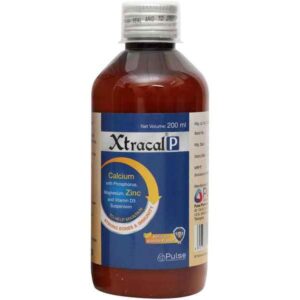CALCIUM CITRATE + MAGNESIUM AND
Calcium Citrate: Calcium Citrate is a calcium supplement used to increase the levels of calcium in the body. It is commonly prescribed to patients with calcium deficiencies, osteoporosis, osteomalacia, and to individuals who have a poor dietary intake of calcium.
The mechanism of action of Calcium Citrate involves calcium ions binding to specific calcium-binding sites on proteins, which helps in the regulation of vital physiological processes, including muscle contraction, nerve signaling, and blood clotting. Additionally, calcium is essential for maintaining healthy bones and teeth.
When taking Calcium Citrate, the dose can vary depending on the individual’s age, condition, and the severity of the calcium deficiency. Typically, the recommended dose for adults is 1000 to 2000 milligrams per day, divided into two to four doses. It is important to follow the prescribed dosage as excessive calcium intake can lead to hypercalcemia and other adverse effects.
Common side effects associated with Calcium Citrate include gastrointestinal disturbances such as constipation, flatulence, and abdominal pain. However, these side effects can be reduced or prevented by taking the medication with food or by choosing a calcium supplement that also contains vitamin D, as vitamin D aids in calcium absorption.
It is essential to consult a healthcare professional before starting Calcium Citrate or any other calcium supplements, especially if you have a history of kidney stones, hypercalcemia, or any other medical condition that may interfere with calcium metabolism. Additionally, certain medications, such as antibiotics, iron supplements, and certain types of diuretics, may interact with Calcium Citrate, so it is important to inform your healthcare provider about all the medications you are taking.
Magnesium And: Magnesium And, also known as magnesium hydroxide, is a medication used to relieve symptoms of indigestion, heartburn, and other stomach-related issues. It belongs to a group of drugs called antacids. Magnesium And works by neutralizing excess stomach acid and reducing the irritation caused by acid reflux.
The recommended dose of Magnesium And for adults is 400-800 mg taken orally or as directed by a healthcare professional. It is usually taken after meals and at bedtime. The dose may vary depending on the individual’s condition, so it is important to follow the instructions provided by a healthcare provider.
As with any medication, Magnesium And may cause side effects. Common side effects include diarrhea, stomach cramps, and an electrolyte imbalance that may manifest as muscle weakness or an irregular heartbeat. If these side effects worsen or persist, it is essential to seek medical attention.
Since Magnesium And is an antacid, it may interact with other medications. It is important to inform a healthcare provider about all the drugs being taken to avoid any potential interactions. Additionally, individuals with kidney problems or a history of allergic reactions to antacids should consult a healthcare provider before using Magnesium And.
In conclusion, Magnesium And is an antacid medication used to relieve symptoms of indigestion and heartburn by neutralizing stomach acid. It is typically taken after meals and at bedtime. It can cause side effects such as diarrhea and stomach cramps. It is important to follow the recommended dose and consult a healthcare provider if any side effects occur or if there are concerns about potential interactions with other medications.

